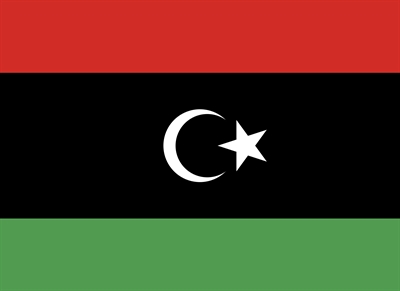Libya - Human Rights Council - Women's Rights - September 2014
Country: Libya
Type: Intl Mechanism Submission
Issues: Bias and Discrimination, Economic, Social and Cultural Rights, Gender-Based Violence, International Advocacy, Women's Rights
Mechanism: UN Universal Periodic Review
Report Type: Stakeholder Report
The Advocates for Human Rights in collaboration with Mobilising for Rights Associates (MRA) submitted a joint stakeholder report on Women’s Rights in Libya to the UN Human Rights Council for Libya’s second Universal Periodic Review (UPR).
Serious violations of women’s rights occurred during the regime of Muammar Qaddafi, the 2011 revolution, and the post-revolution transition. Women in Libya continue to face serious violations of their human rights in the forms of sexual and gender based violence, discrimination in personal status, and discrimination in the political, economic, and social fields.
At its 2010 UPR review, Libya accepted recommendations that called for a national strategy to combat discrimination against women, policies and legislation to combat violence against women, and efforts to enhance women’s participation in the social, economic, and political fields. Data gathered by MRA through consultations with 40 Libyan NGOs demonstrates that Libya has not met its obligations to implement these recommendations. Libya has taken some steps towards promoting women’s rights by drafting a bill on rape and violence against women, prohibiting and criminalizing discrimination based on gender in the Draft Constitutional Declaration, and in passing Law No. 20 of 2013. However, after the 2011 revolution, the transitional government limited women's rights by passing a law that sanctions impunity for serious human rights violations, including sexual offenses, overturning a law to reduce polygamy, and allowing policies that curtail women's freedom to engage in public life. Widespread discrimination and gender-based violence, including sexual assault, remain a concern. Women who are human rights activists, journalists, and politicians have been increasingly harassed, intimidated, attacked, and killed by militias.
This stakeholder submission makes recommendations, including that Libya:
- Amend Penal Code and repeal of Law No. 70 of 1973 to decriminalize sexual relations between consenting adults and ensure that victims of sexual assault do not risk criminal prosecution;
- Adopt a comprehensive domestic violence legislation with both civil and criminal provisions;
- Criminalize spousal rape and implement public education about the law;
- Enact the Draft Bill on Rape and Violence against Women into law and repeal provisions of Special Procedures Law No. 38 of 2012 that grant immunity for gender-based violence;
- Take active measures to ensure the security of women human rights defenders, journalists, and politicians, and to ensure they are able to organize, assemble, and express their views; and
- Abolish the use of Social Rehabilitation Centers, immediately release all women and girls being held in these centers, transform facilities into safe homes and shelters for vulnerable women and girls to use on a voluntary basis, and ensure these facilities provide job training, counseling, childcare, and other services.




